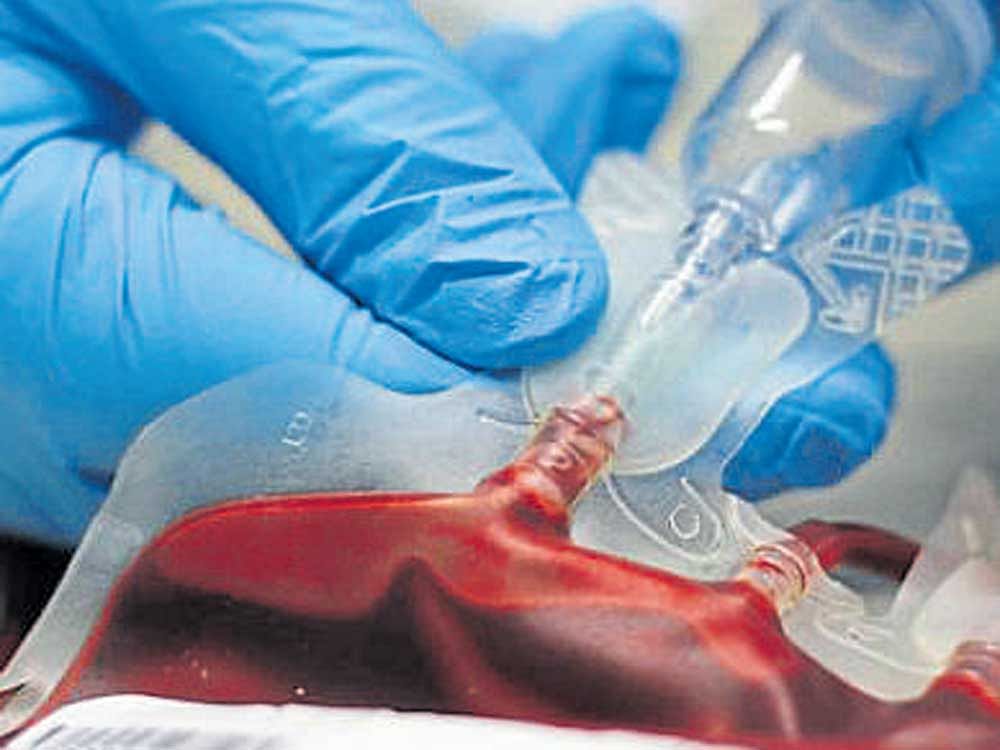
“The world does not know that we go through excruciating pain,” said Gagandeep Singh Chandok, a thalassemia patient.
The 34-year-old was diagnosed with thalassemia when he was one-and-a-half-years old. Being a carrier of beta thalassemia major (blood disorder that reduces production of haemoglobin), Chandok spoke of excruciating pain during treatment.
He, however, is not alone. Karnataka has an estimated 2,500 children suffering from thalassemia according to Sankalp India Foundation, an NGO that has been working for the past 10 years in the field of preventing and curing thalassemia.
According to the NGO, many families are plagued by this disease due to little or lack of prevention techniques. More than 750 children approach the NGO for regular treatment at its centres in Bengaluru and Belagavi.
According to the Indian Academy of Paediatrics, there are approximately one lakh people born with thalassemia every year in the world, including 10,000 in India. It is estimated that there are around 65,000 to 67,000 beta thalassemia patients in the country.
“There are 8,000 to 10,000 children born with thalassemia every year,” said Dr Sharat Damodar, haematologist and head of bone marrow transplant unit at Narayana Health City, Bengaluru. The most common treatment for thalassemia major patients is red blood cells transfusion. Most thalassemia major patients receive red blood cell transfusions every two to three weeks.
“I have to infuse two units of blood in 15 days. Apart from that, I am injected a medicine called Desferal where the injection needle is pricked into the muscles and placed under the skin for about 10 to 12 hours,” said Chandok.
It costs Chandok around Rs 30,000 and at least six trips to the hospital every month.
Rakesh Dhanya, CEO of Sankalp India Foundation said that there is no organisedprogramme for thalassemia patients in Karnataka. It depends solely on the individuals’ ability to get funds from the government unlike many other states like Maharashtra, Andhra Pradesh, Telangana and Tamil Nadu where a system is in place.
He said, “One child applied for the benefit from the Chief Minister’s Relief Fund in 2015 but got it only two months ago.”
He said a sustained programme will be able to channelise funds while the present system, where individuals approach the government, will not bear fruit.
He said Health Minister Ramesh Kumar had promised his support when they approached him for help but they are yet to see results.
Dr Damodar said there is a need for India to have gene therapy for thalassemic patients since it does away with the need for a donor and rectifies the problem with the patients’ own gene.
Mumtaj Surya is a 30-year-old thalassemia major patient. Thalassemia major patients surviving beyond the age of 20 to 25 is difficult due to iron overloading as a result of blood transfusion.
However, Mumtaj has regularly been taking blood transfusions and maintaining the iron within reasonable limits.
“Many of them tend to have endocrine problems. Because of infertility issues, a lot of them don’t get married,” Dr Damodar said.
However, Mumtaj was able to maintain her endocrine function and went on to marry her distant relative after confirming that he does not have thalassemia. She delivered a baby boy, who is not affected by thalassemia. “This is a rare occurrence in the history of thalassemia,” said Dr Damodar.